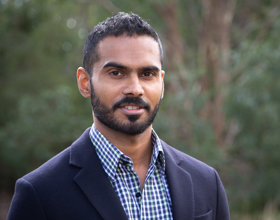
More targeted care and additional research into treatments for young people experiencing a first episode of bipolar are urgently needed, a new review has found.
The review, published in The Lancet Psychiatry by a team of international experts from Orygen, the National Centre of Excellence in Youth Mental Health, and NIHR Maudsley Biomedical Research Centre in the United Kingdom, describes patchy and inconsistent care, widespread failure to detect bipolar disorder early, and a lack of guidance on how to treat people experiencing mania for the first time.
People with bipolar disorder experience a cycle of mood swings between depression and mania, it most commonly appears when people are in their twenties but may occur earlier or later in life. The World Health Organization’s Global Burden of Disease ranked it as the fourth leading cause of overall disease burden in people aged 10 to 24.
The researchers reviewed current evidence to illustrate the prevalence and health burden of bipolar disorder in its early stage, the typical progression of the illness, evidence for a range of interventions and the content of international guidelines.
Orygen’s Dr Aswin Ratheesh said despite the existence of evidence-based treatment models, people experiencing first episode mania had largely been overlooked by health services. “Our review is calling for clearer treatment guidelines and targeted care for young people experiencing mania for the first time,” Dr Ratheesh, a psychiatrist and researcher, said.
“We found that very few trials have examined interventions specifically for people who have had a first manic episode, and found inconsistencies in the care offered to them.
The lack of research means that there are few guidelines, few services and hence few options for the majority of young people with bipolar disorder, Dr Ratheesh said. “We need to provide comprehensive early intervention services for young people from their first onset of mania, and generate robust evidence regarding what works and what doesn’t”.
“Good early intervention should involve helping young people to adapt to their vulnerability, identifying ways to prevent future episodes and supporting family members.”
Dr Ratheesh said bipolar disorder affects more than half a million people in Australia. “Young people with bipolar disorder form a significant part of the ‘missing middle’ in youth mental health and early intervention. They are often too sick for primary care services such as headspace, but not sick enough for more specialist medical health services.”
“We strongly believe that helping young people early can prevent the onset of disability associated with the disorder. Early intervention can help them go on to work, have families, and participate in all aspects of community life.” Dr Ratheesh said.